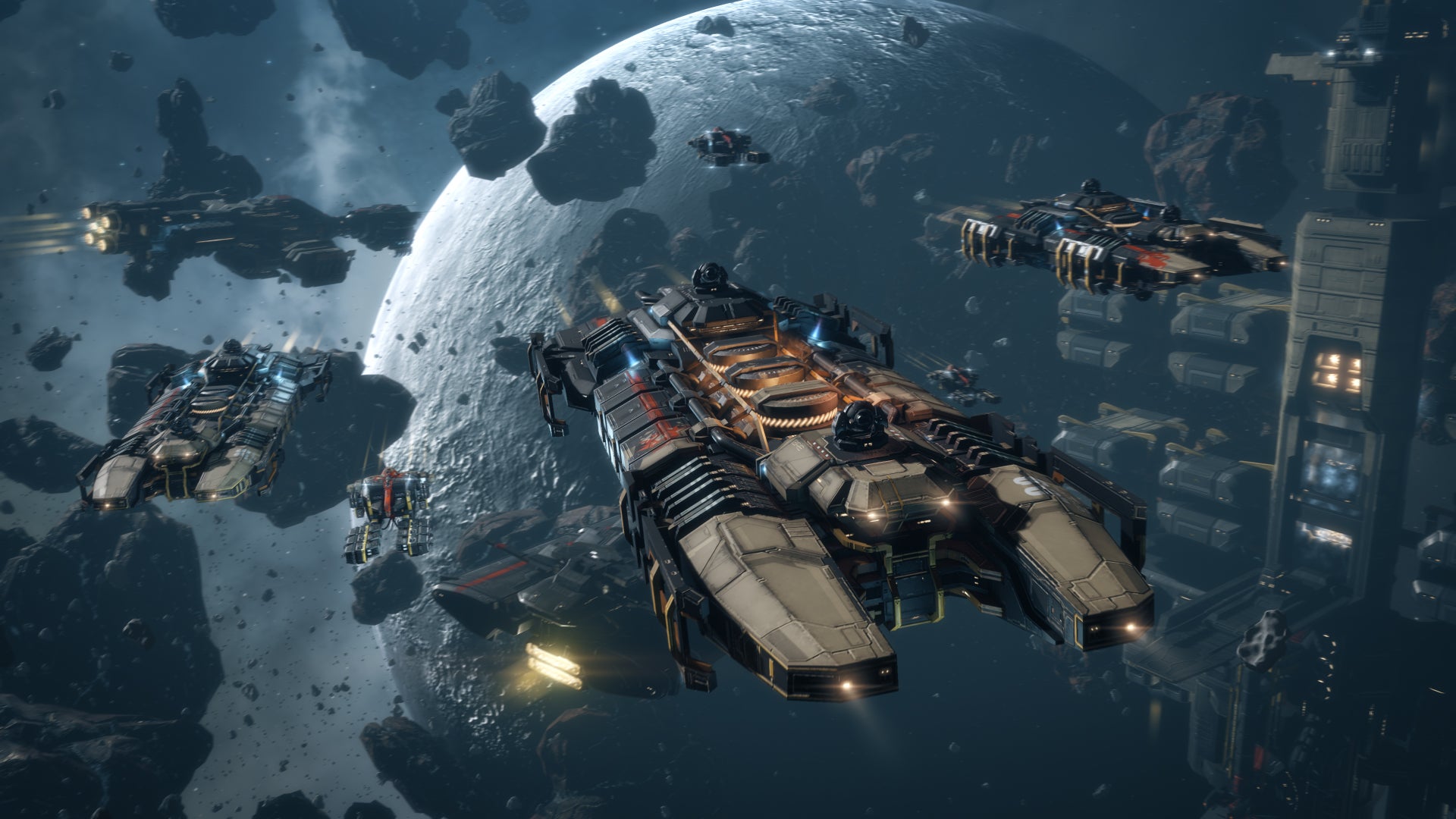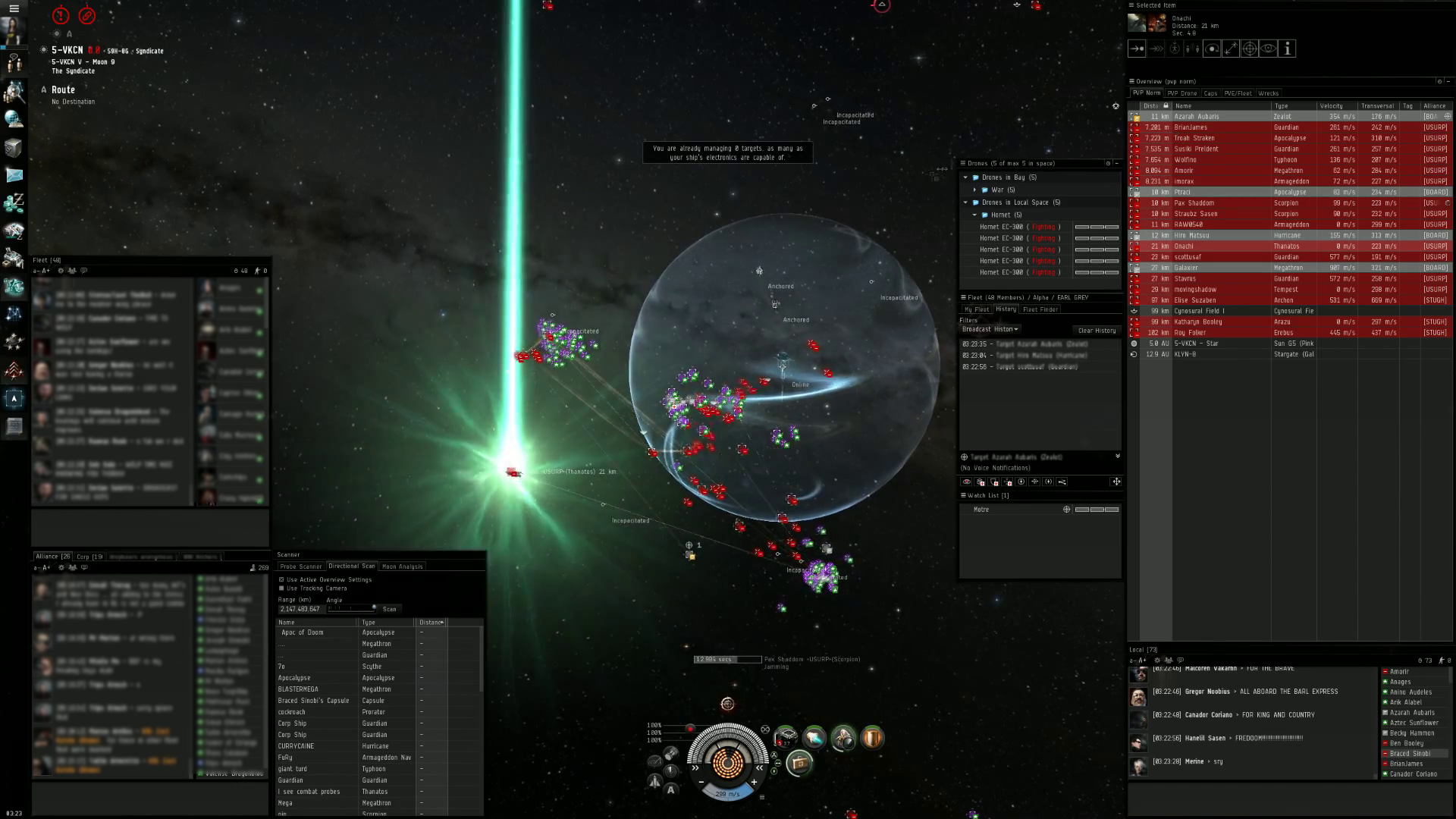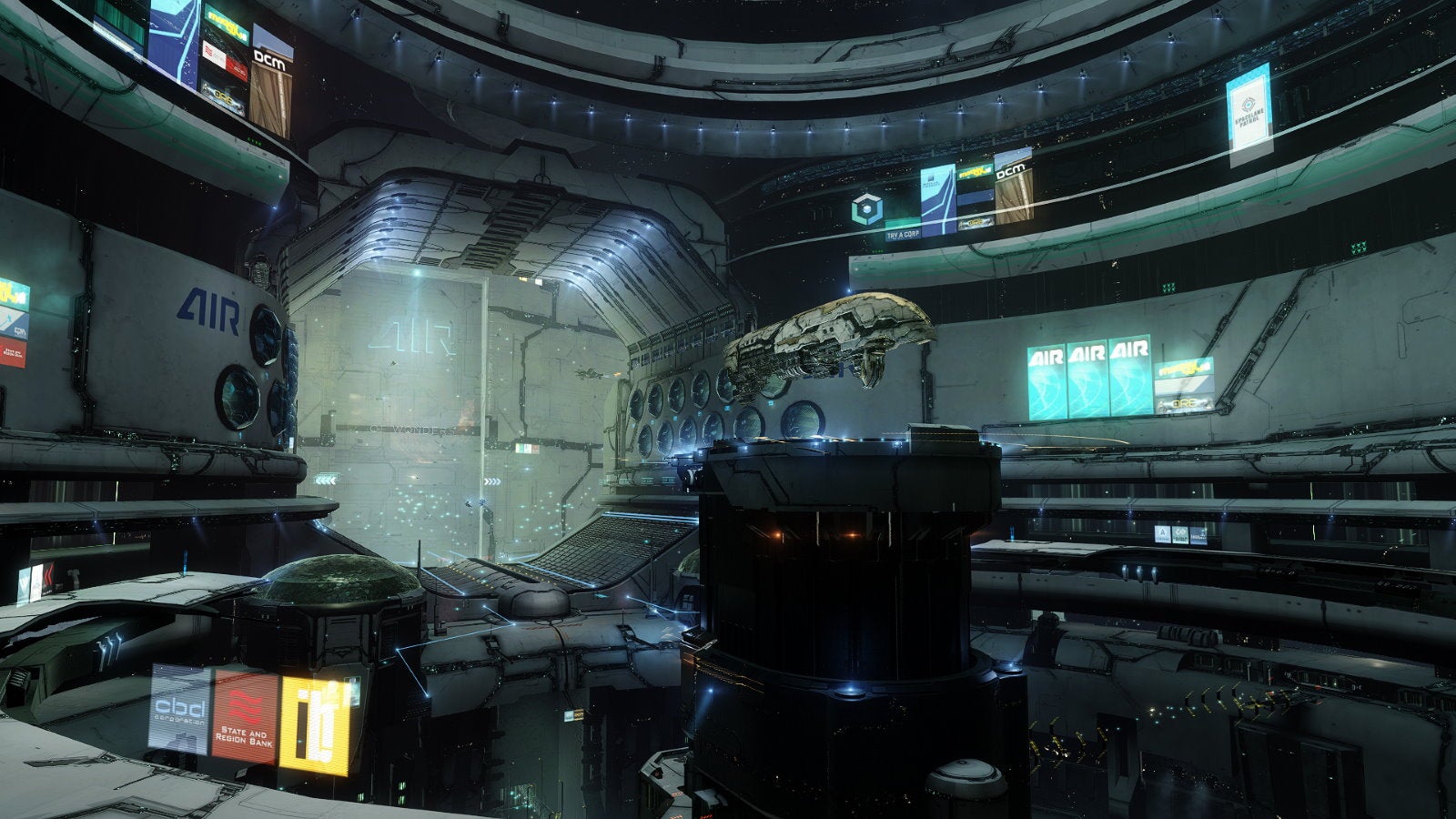Among the many graphs that Finnbogason presented to the Eve faithful during his Fanfest keynote in Reykjavík this year, one was a colourful standout. It showed Eve Online’s learning curve as a comedy cliff face, so steep that it turned back on itself. Stickmen tumbled from its peak, while others were crucified or hanged from the curve’s mantel - killed by Eve’s notoriously cruel new player experience. It earned a laugh of grim recognition from the audience, all survivors of that terrible climb. If you think of Eve as an alternative reality - perhaps the deepest and most societally complex that PC gaming has to offer - then the issue quickly becomes apparent. Starting out in Eve isn’t so much a question of learning the controls as it is another birth. “The problem is, on this side of reality, we go to kindergarten, elementary school, secondary school, college, university,” Finnbogason says. “And at 25, you feel like you have the mental brainpower to maybe buy a flat or not be drunk every Tuesday of your life. So it is a crazy thing, expecting that a new player would wander into low-sec after a day or a week. There’s so much beauty and epicness that happens once you hit this PvP element of Eve, but teaching it is super daunting.” New players come to Eve all the time, off the back of stories they’ve read about grand, player-driven battles and shocking, high concept betrayals. But the gulf between their first baby steps and participation in that emergent space opera is so wide as to seem insurmountable. “The churn is just phenomenal for Eve, how many people don’t make it past an hour,” says Mike Azariah, an Eve veteran who runs an initiative for new players called Operation Magic School Bus. “It’s hard to explain to new players that there isn’t a right thing to do next.” “We funnel an incredible amount of new players through, and we’re really good at killing them,” Finnbogason says. “They somehow manage to come out the other end with three black eyes. We’re just really good at not allowing them to experience the awesome that Eve is.” It’s not that developer CCP hasn’t been trying. Over the years, the Icelandic studio has made numerous attempts to soften the curve, with mixed results. “But every time we’ve tried new things, we’ve learned something new,” Finnbogason says. “And back in 2019, we basically made the call that, OK, we have to stop looking at this as a thing we can duct tape, and we need to look at this as a company-wide problem.” CCP started asking staff in HR and finance to sit down and log into Eve for the first time. They watched as these space babies “crashed into walls”. And in the months afterward, the dev team worked with the manta ‘stop the bleeding, fix the stupid’, patching up the bad experiences that plagued the early game. “It was just really hard to understand Eve,” Finnbogason says. “I think we had 135 different buttons in the game. We taught the blue OK button, and then it was pink and round. That’s bad. Sometimes you’ve just gotta take a step back, take a deep breath and say, OK, we gotta deal with it.” Since CCP halted the haemorrhaging, it has patched a new story-driven intro into Eve that begins right after character creation, and concerns the cinematic evacuation of a besieged facility. There’s also an introductory mining mission in the same vein - a bit of ore humour for you there - and plans for a similarly curated quest focused on exploration, which the studio’s data shows is one of the major draws for new players. These NPC stageshows aren’t what hardcore Eve is like, of course. Instead they’re more like interpretive art - fictions designed to represent the kind of dramas that occur in player-owned space. Beyond that initial greeting, CCP is working on the AIR Career Program - a background system designed to guide new players through activities in their chosen space job. It’ll track player actions, provide rewards for completed goals, and let newbies try out ships in advance to discover what they enjoy. Or, as game designer CCP Nomad put it to the corp owners in Fanfest’s audience: “It creates capable Eve players who know what to do and how to do it.” That remains to be seen. But these efforts have yielded some measurable results. In 2018, the median time for a first session in Eve was 13 minutes. Now it’s 27 minutes. “By giving people purpose, we’re actually starting to push up the sessions after the first session,” Finnbogason says. 57% of Eve Online players today joined since the last Fanfest in 2018 - a figure which certainly suggests that more newcomers are sticking around. Yet an Eve birth is evidently still about as comfortable as Neo’s harvesting from the fetus fields in The Matrix. If it wasn’t, there would be no need for volunteers like Azariah, whose Operation Magic School Bus began as an offhand suggestion on a podcast seven and a half years ago. “I said we need something like a welcome wagon to help the players connect to the game more,” he recalls. “The NPC game is very sterile and mechanical, but if there was somebody there who was actually a real player to talk to them, that would help.” In practical terms, giving new players a leg up meant heading to the rookie space systems and putting out an open call: “Speak up in local and I’ll give you a ship, fitted”. And so that’s what Azariah has been doing ever since. It’s an expensive hobby, but as it turns out, there are enough Eve philanthropists to keep the project stocked with first-level ships indefinitely. “Now every time somebody donates, I feel like they’re building another link on the chain that’s tying me to the helm of this ship,” Azariah says. “I’m the Flying Dutchman of the game, doomed to wander these spaceways and help out.” Azariah complains with a smile on his face. As a retired teacher, he’s hardwired to try and show new arrivals the ropes. “Learning is in my blood and in my bones,” he says. “And so new player experience is something I’ve worked hard with CCP on.” Whenever the developer rolls out a new tutorial, Azariah will build a new character and run through it, making critiques as he goes. A player at Fanfest this year recognised Azariah as the first person who actually talked to them in-game, half a decade on. “If they ask questions, I will answer questions,” he says. “If they ask what a good corp to join is, I say, that depends. If you want to get into null-sec and get into huge space battles that make the news, these are the people to talk to. On the other hand, if you want to be a miner in high-sec, these are not the people to talk to.” It’s easy to see Azariah’s role in Eve as an indictment - a heartwarming symptom of an issue the game’s developer should be solving. But as CCP has determined, and as the School Bus driver agrees, there are no easy solutions. “You’re in a game where if you undock, you’re agreeing that you could blow up now,” Azariah says. “It’s like the wild west - you step out of the saloon, someone can open fire. It would be considered cheap and cheesy, but there are people who like being cheap and cheesy.” The question, then, is how to arm newcomers to face a hostile world. “If you were a game designer,” Azariah asks, “how would you teach PvP to a brand new player in such a way that the veterans of the game who are bored didn’t come in and turn it into duck and rabbit season?” Eve players are experts at weaponising any new addition to the game, regardless of its intended purpose. In the past, Azariah has sat on the Council of Stellar Management - a 10-member group of elected players who advise CCP and represent the Eve community: “In a lot of CSM meetings, CCP says, ‘We’re thinking of doing this’. And at least three CSMs say, ‘If you put that in the game, we will abuse the shit out of it, and we will make you regret putting it in’. Sometimes they’ve ignored us, and found out.” The amateur economists of leading corp Goonswarm, for instance, have leveraged tiny changes to play the market and “wipe the board” on several occasions. “I try to look at it from the new player experience and say, if we’re going to have a little PvP arena, I can name players who are going to make new characters and just sit in that arena and destroy everybody who comes in,” Azariah says. “They exist and that’s their gameplay. But they’re not thinking long-term. I’m not doing the Magic Schoolbus to build an organisation or worshippers. I’m doing that because I love the game. I do what I do because that’s my gameplay: to help the game survive long-term.” Ultimately, this is why the new player experience is not just the business of CCP, who have a financial incentive to get it right. A regular influx of fresh capsuleers is also in the interest of the grizzled veterans who attended the Fanfest keynote in-person. It’s those players who need new blood to fight their wars, and to keep them on their toes with fresh strategic perspectives. As Finnbogason put it to the crowd: “It’s our role at CCP to prepare the hopeful cadets into your Eve Online. Because more players equals more content, and equals a better game.” To my mind, the most promising development on this front isn’t to be found among CCP’s explicit efforts to lure in new players. Rather, it’s last week’s announcement of improvements to factional warfare. Over the coming years, players will be able to fight on behalf of Eve’s various fictional governments and empires - taking on missions that will, CCP promise, make a lasting impact on the shape of New Eden. If player corps are sufficiently tempted by the promise of leaving a permanent mark on this decades-old game, then Eve Online’s NPC and player-driven worlds will swirl together like never before. If it works out, it’s a plan that can only help close the gap between the PvE game newcomers see, and the PvP wildlands they hope to enter. “Factional warfare is the bridge,” Finnbogason agrees. “That’s the thing that will connect these two things.” During the pandemic, Finnbogason started mucking about in wormholes - the volatile, dangerous spaces that host some of Eve Online’s most extreme interactions. “I’d never really gone full-force into them,” he says. “That’s ten years after I started playing. Ten years in and I’m trying a new playstyle. “Even flying a Titan is something that you do for the first time at some point, and you need to learn it. So in many ways, the new player experience really never ends.”




